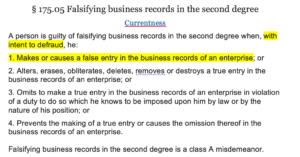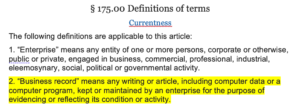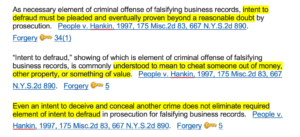I became your enemy because I tell you the truth
“You can fool some of the people all the time and all the people some of the time,
but you can’t fool all the people all the time.” A. Lincoln
I’m not going to cover much of the chatter around Trump’s arraignment yesterday, because I bet most of you are already following it and second, since you read a lawyer’s Substack, you expect some proper legal analysis and not just hot takes, a bunch of blah-blah, or jokes at a time like this.
But in case you work the night shift and slept peacefully through the afternoon yesterday: Trump “turned himself in” and was arraigned in court. He was not arrested. He was not processed. There was no mugshot. There was no fingerprinting. There was no “perp walk.” He walked into court, sat down, when asked said “not guilty,” and then walked out again at the end of the hearing.
Judge Merchan suggested but did not order President Trump to stop tweeting or talking about the case. The judge set the next court hearing in the case for December, because he’s so very busy with other, more important cases or something. That means the circus resumes right before the primaries begin.
In related news, the Daily Mail UK reported that Judge Merchan’s 34 year-old daughter worked for Kamala Harris and Joe Biden in the 2020 elections. That’s one of the grounds supporting a motion Trump’s lawyers filed yesterday to move the case out of Manhattan to Staten Island.
Now let’s talk about the indictment.
First, let’s quickly review the now six year-old story — as described in DA Bragg’s filed statement of facts.
In 2018, the FBI raided Michael Cohen and the offices of the National Enquirer. After threatening to put them away for ever, Cohen and the Enquirer’s owner accepted plea deals, throwing Trump under the bus by “admitting” that in 2016 they helped candidate Trump buy the rights to a prostitute’s salacious story for $130K, so that it wouldn’t hurt Trump’s election chances. Both Cohen and the Enquirer’s owner were charged with the process crime of an illegal campaign contribution — in other words, of failing to report the payments as campaign donations.
It was a pure process crime. Nothing about buying the story rights was illegal. Bragg’s statement of facts even admitted Cohen and the Enquirer were routinely buying rights from people who were trying to peddle harmful information about Trump. Bragg also admitted that at least one of the stories turned about to be false after an investigation (a doorman’s claim Trump had an out-of-wedlock child).
So the story-buying project, if that’s what it was, was not intended to bury “true” stories, just bad stories.
Bragg claims Trump’s organization paid Cohen over $400K for “legal services,” which Bragg claims was actually to reimburse Cohen for the $130K Stormy Daniels payment. Bragg didn’t say it, but the clear implication is that Trump also mischaracterized the payments, at least part of them, as legal expenses when he should have reported them as campaign expenses.
In Bragg’s opinion, anyway.
Candidates are allowed to donate to themselves, they just have to report how much they spend ON THE CAMPAIGN. Bragg (and many liberals before him) think the $130K for Stormy’s story rights was actually a campaign expense, just like advertising on TV, and it should have been reported as such.
To be clear: nobody is claiming that the payment to Stormy Daniels (not her real name) was illegal, or even that the payments to Michael Cohen were illegal, even though that’s all they quack about.
That’s basically the whole story. I wonder how many other politicians have bought helpful things but have never been prosecuted. Oh wait, that’s right, Hilary did it in the same election and just got a fine, after paying for the Christopher Steele “Russia Collusion” dossier. And the dossier was a LOT more expensive than Stormy Daniels’ sex story.
Anyway, that’s how the chips fall sometimes. Prosecutorial discretion and all that. It’s definitely not politics.
Now let’s consider the indictment.
Bragg’s indictment has 34 counts of the same exact “crime,” alleging 34 separate violations of the exact same New York Penal Code §175.10, for “falsifying business records in the first degree.” All 34 counts are based on one single transaction, the one single payment of $130K to Stormy Daniels. Bragg boosted the charges to a whopping 34 by counting every microscopic stage of the transaction as a separate crime.
Lawyer Cohen sent 12 monthly retainer invoices to Trump’s businesses (not to the campaign), and they entered the invoices into their accounting system and issued payment checks. So Bragg is counting every single invoice, every single accounts payable entry, and every single check as a separate crime of “falsifying business records.”
I could not find a single case in New York’s legal history where a defendant was charged separately for all the parts of the same transaction under § 175.10.
To pump the mis-accounting charge up to a felony, Bragg also must prove that Trump’s INTENT in paying Cohen’s legal retainer was not just to cover up his sordid relationship with the sex worker, but to cover up another CRIME, which presumably would be the campaign finance violation.
But so far, DA Bragg has refused to identify what the other crime is, even when directly asked by reporters. It’s goofy, and that’s a tell. That’s where I think the DA plans to spring a surprise, but more on that in a minute.
Penal Code § 175.10 is one sentence long, and itself requires proof of a lesser crime, misdemeanor falsifying business records, under the immediately previous statute, § 175.05.
That statute describes the crime:
So, Bragg must prove two “elements”: (1) that Trump had an “intent to defraud” somebody when the accountant miscoded the expenses, and (2) Trump personally directed the false entry to be made in the “business records.”
The whole case revolves around Trump’s bookkeeper entering Cohen’s invoices into the accounting system and calling them “legal expenses” instead of … what? Buying story rights? Donations to Trump’s campaign? Bragg doesn’t say what they should’ve been called instead.
What would YOU call payments to your lawyer?
Under the New York law, to qualify as a crime, the false record can’t be just any old business record. It has to be something that would cause other people to be defrauded, like investors, or an insurance company.
Here’s how the statute defines a qualifying “business record”:
Courts have focused on that final phrase: “evidencing or reflecting its condition or activity.” In every case I reviewed, the business records were always something resulting in a fraudulent payment or a financial advantage, like fake time cards that got someone paid for work they never did (like Hunter’s Burisma board job, say), or recording regular payroll as a bonus to avoid paying state payroll taxes.
In many cases, New York courts found that particular business records were NOT subject to the statute, like putting false answers on a job application.
As far as I can tell, Trump’s legal expense entries didn’t create any financial advantage for the “enterprise,” and nobody depended on them that was or could have been defrauded. So it’s not clear to me that the Cohen invoices and payments were the type of business records that could be subject to the statute.
But Bragg’s biggest problem is proving intent. He doesn’t just have to prove intent, he must prove TWO separate intents: an “intent to defraud” related to the Cohen payments, PLUS an intent to cover up a second crime, the campaign finance violation. That’s the only way Bragg can reach a felony level of “falsification.”
Not only that, but Bragg must prove both those intents “beyond a reasonable doubt” — the highest standard of proof under the law. OJ Simpson walked because they couldn’t prove murder beyond a reasonable doubt. “If the glove don’t fit, you must acquit.”
In other words, it doesn’t matter whether the coding for “legal fees” was actually incorrect, or whether a campaign reporting violation actually occurred. Bragg has to prove that Trump — in his own mind — both intended to deceive people to get a financial advantage, and also intended avoid reporting legitimate campaign expenses in a criminal way.
So if Trump himself didn’t personally know — for sure — that the payments should have been reportable campaign expenses, or even if Trump didn’t AGREE that the payments were reportable campaign expenses, there’s no crime, because he lacked criminal intent.
As you can imagine, an “intent to defraud” has — to this point — always been related to some kind of fraudulent scheme to bilk money out of someone.
Here are the first three case citations my legal database shows for the statute:
The second one is the key. “Intent to defraud” is commonly understood to mean cheating someone out of money, property, or value. To convict Trump, Bragg must get the court to agree to a brand new definition of “intent to defraud,” because the Cohen payments obviously weren’t intended to cheat anyone out of money, property, or value.
You will also note that the key flag on those citations refers to “forgery.” That’s because in every case I found, the “intent to defraud” was proven by someone forging a document out of thin air, like a fraudulent insurance claim for damages that never actually happened, fake time cards for work that was never done, or a fake handgun disposal form for a weapon the person actually kept.
But here, according to DA Bragg’s own facts, Trump owed the money to Lawyer Cohen and paid him. Nobody’s saying that anyone got cheated or that the money wasn’t owed or that there was anything illegal or fraudulent or even improper about the payments whatsoever.
Those are huge problems for the DA. The entire case will boil down to what was in Trump’s mind at the time. Absent jurors with mind-reading powers, it’s not clear what Bragg has to work with, beyond an insatiable appetite for high-stakes prosecution and carb-loaded convenience-store snacks.
Now let’s discuss Bragg’s “surprise.” Reporters were shocked, and online pundits were outraged, that DA Bragg’s indictment doesn’t include any crimes related to the second step, the alleged campaign finance violation. That seems like a big problem for Bragg. He can’t prosecute Trump for federal campaign finance crimes, because he lacks jurisdiction. He can’t prosecute Trump for state campaign finance crimes because it was a federal election and federal law applies, not state law.
But that might not be as much of a problem for Bragg as it appears. So far, folks seem unaware of some New York law that could make Bragg’s job on this point easier. During my quick research, I found this in a treatise on New York criminal law:
“The jury could … convict defendant of falsifying business records if the jury concluded that defendant had the intent to commit or conceal another crime, even if she was not convicted of the other crime” (People v. McCumiskey; see People v. Saxton; see also People v. Taveras (“Read as a whole, it is clear that falsifying business records in the second degree is elevated to a first-degree offense on the basis of an enhanced intent requirement … not any additional actus reus element”) ).
In plain English, what these cases held is that prosecutors don’t have to convict someone for the necessary second crime. They only have to prove there was an INTENT to “commit or conceal” the second crime. It’s a thin distinction, but there it is.
In other words, DA Bragg thinks he doesn’t have to prove or even identify the second crime of campaign finance violation. He probably just thinks he can skate by, only proving Trump intended to generally skirt campaign finance laws, by showing Trump’s intent to conceal the true nature of the payments, and by waving his arms around babbling “there’s LOTS of campaign reporting requirements out there.”
Bragg might even think that he can claim there doesn’t need to be another crime at all, just an intent to violate a non-crime that Trump mistakenly believed existed.
It’s a horrible theory; the kind of workaround brand-new lawyers fresh out of law school come up with after spending all night in the firm’s law library trying to find SOMETHING to save a case. In this case, with these stakes, there is NO way, none, that Trump’s lawyers will let Bragg ooze out of identifying the other crime.
If Bragg had a strong theory about the second crime, we’d have seen it. I bet when we do see it, we’ll laugh even harder than we did at the “falsifying business records” claims.
I’m not a criminal defense lawyer, and I never practiced in New York, but even I would take THIS case. It looks that easy.
🔥 Remember, I came up with this initial review after only a few hours research. And I’m an out-of-state, non-criminal lawyer. And I haven’t even mentioned any of the significant legal and procedural defenses that Trump has.
Trump’s smart criminal lawyers will find a LOT more to work with in the weaknesses of Bragg’s bush-league indictment.
So … what EXACTLY are we doing here? Bragg is breaking a 230-year-old social and political norm using the worst possible case, a case built on a murky, victimless process crime, a case that requires stretching a garden-variety forgery statute into something completely unrecognizable.
Here is Bragg’s boring 34-count indictment.
Here is the slightly more interesting Statement of Facts, but from Bragg’s point of view.
🔥 I’m not the only one who thinks Bragg is over his skis. Even CNN seemed depressed last night. Jake Tapper interviewed an analyst who called the indictment “a little underwhelming.”

Indeed. The analysts’ comment about the indictment being underwhelming was itself a little underwhelming. The case is a stinker, a scratched-at-the-flag non-starter. It just began and already Bragg’s case is already is life support, being ventilated by a sympathetic court.
RINO goofball John Bolton also appeared on a CNN panel and completely panned the charges. Bolton, for once, seems to agree with me. He also pointed out a couple promising-sounding Constitutional defenses, like potential First Amendment and federal pre-emption claims. Enjoy the crestfallen CNN panel’s body language while Bolton is talking.

Expect a lot more criticism of Bragg’s indictment as time goes by and lawyers continue digging into the merits, or rather, the lack of merits.
All it takes for Evil to triumph is for good people to do nothing
Michael Loyman



